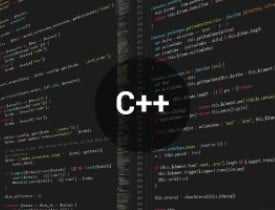Description
Course Name: C++ Programming Language
Course Id: CPA/Q0001.
Education Qualification: 12th Class.
Duration: 90 Hrs (Equivalent to 3 months).
How You will Get Diploma Certificate:
Step 1- Select your Course for Certification.
Step 2- Click on Enroll Now.
Step 3- Proceed to Enroll Now.
Step 4- Fill Your Billing Details and Proceed to Pay.
Step 5- You Will be Redirected to Payment Gateway, Pay Course and Exam Fee by Following Options.
Card(Debit/Credit), Wallet, Paytm, Net banking, UPI and Google pay.
Step 6- After Payment You will get Study Material Login id and Password on your email id.
Step 7- After Completion of Course Study give Online Examination.
Step 8- After Online Examination you will get Diploma Certificate soft copy(Scan Copy) and Hard Copy(Original With Seal and Sign).
Step 9- After Certification you will receive Prospect Job Opportunities as per your Interest Area.
Online Examination Detail:
Duration- 60 minutes.
No. of Questions- 30. (Multiple Choice Questions).
Maximum Marks- 100, Passing Marks- 40%.
There is no negative marking in this module.
Benefits of Certification:
- Government Authorized Assessment Agency Certification.
- Certificate Valid for Lifetime.
- Lifetime Verification of Certificate.
- Free Job Assistance as per your Interest Area.
Syllabus
Introduction to C++: Introduction to C++ programming, C++, C versus other languages, high vs low level program python implementation, scientific hello world in C++, differences from the C++ version, how to compile and link C++ programs, running the script, major differences from the C++ version, declaring basic C matrices, Dynamic memory allocation in C++,High-level vectors in C++.
Classes & Object: Introduction, C++ data types, C++ basic C++ program construction, C++ arithmetic operators, C++ library functions, C++ manipulators, objective.
Inheritance & Polymorphism: Single inheritance, multilevel inheritance, multiple inheritance, Hierarchical inheritance, hybrid inheritance (virtual inheritance), objects, classes, abstraction encapsulation, polymorphism, compile time polymorphism, run time polymorphism.
Operator overloading: Operator functions, using overloaded operators, global operators functions, friends functions, friend classes, overloading subscript operators, overloading shift operators I/O.
Templates and Exception handling: C++ templates, exception handling, throwing exceptions, catching exceptions, C++ standard exceptions.
Streams and Files: Formatting and manipulators, formatted output of integers, formatted output of floating-point numbers, output in fields, output of characters strings, and Boolean value, formatted input, formatted input of numbers, unformatted input/output.

